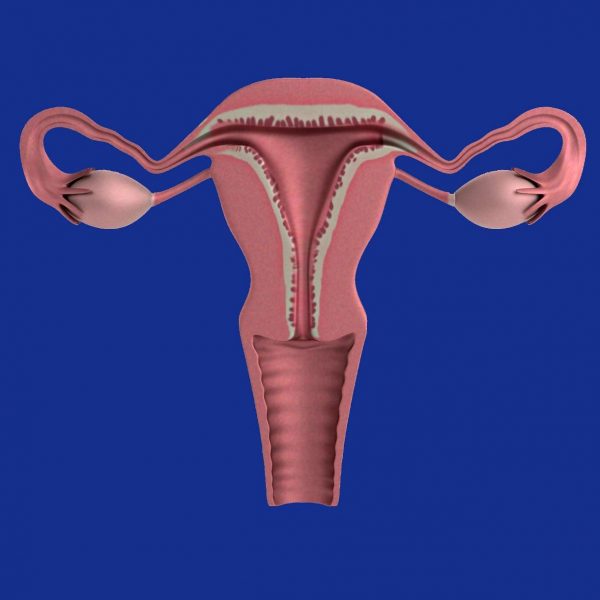Why The Mediterranean Diet And Extra Virgin Olive Oil Can Reduce Your Risk of PCOS
Updated 30th November 2023

Summary:
Contents:
- Polycystic Ovary Syndrome, The Mediterranean Diet and Extra Virgin Olive Oil
- Seven Key Benefits Of The Mediterranean Diet To Reduce PCOS Risk
- What Is The Mediterranean Diet And Why Is Extra Virgin Olive Oil An Important Component?
- What Is Polycystic Ovarian Syndrome?
At Morocco Gold, we keep a close eye on any new ways that The Mediterranean Diet can help improve women’s health and help protect against conditions like PCOS.
Polycystic ovary syndrome (PCOS) affects women in many different ways and we are keen to update you on any new guidance which shows why the Mediterranean Diet (including polyphenol rich extra virgin olive oil) can reduce the risk of this condition.
Polycystic Ovary Syndrome And The Mediterranean Diet
Do you suffer from PCOS, or know someone who does? According to the US Department of Health and Human Services, as many as 11% of women between the ages of 15-44 have Polycystic Ovary Syndrome (PCOS). PCOS is the most common endocrine disorder among women—but it can be managed. And one way to do that is by following a Mediterranean diet. Studies have shown that this type of eating style has several health benefits for those with PCOS including reduced symptoms, increased reproductive health and improved metabolic markers. Read on and learn more about why the Mediterranean Diet could help reduce risk associated with PCOS.
Seven Key Benefits Of The Mediterranean Diet To Reduce PCOS Risk

According to a recent article from NDTV.com, there are seven key ways in which the Mediterranean Diet can reduce the risk of PCOS. These are;
1. The Mediterranean Diet Can Help Maintain a healthy weight
Discover the power of the Mediterranean diet – a delicious way to maintain a healthy weight and reduce the risk of polycystic ovary syndrome (PCOS). Packed with fresh produce, whole grains, lean proteins, and healthy fats this balanced eating plan offers a natural solution to managing your body weight and overall well-being.
2. The Mediterranean Diet Can Help Control blood sugar levels
The Mediterranean diet can help manage PCOS and reduce the risk of type 2 diabetes. With its emphasis on whole grains and legumes, this diet can stabilize blood sugar levels and improve insulin sensitivity. Say goodbye to insulin resistance and hello to a healthier you.
3. The Mediterranean Diet Can Provide essential nutrients
The Mediterranean diet is packed with vitamins, minerals, antioxidants, and anti-inflammatory compounds, this diet is the key to a healthier you. By enjoying a colorful array of fruits and vegetables, lean proteins, and nourishing fats, you can provide your body with essential nutrients and lower the risk of PCOS.
4. The Mediterranean Diet Can Reduce Risk Of Cardiovascular Disease
Reduce your risk of cardiovascular diseases associated with PCOS by adopting a heart-healthy Mediterranean diet. This diet promotes the consumption of fish, olive oil, nuts, and seeds – foods loaded with healthy fats like omega-3 fatty acids. These fats have been proven to reduce inflammation, improve heart health, and mitigate the risk of cardiovascular complications related to PCOS.
5. The Mediterranean Diet Can Decrease inflammation
Incorporating an abundance of fruits, vegetables, whole grains, and healthy fats, this eating plan effectively combats chronic inflammation. Embrace this approach to potentially alleviate PCOS symptoms and restore balance to your body.
6. The Mediterranean Diet May Improve fertility
Struggling to get pregnant due to irregular periods and hormone imbalances? The Mediterranean diet could be the solution you’re looking for! By focusing on nutrient-rich foods and beneficial fats, this diet can help restore hormonal balance and enhance your chances of conceiving. Boost your fertility and improve your reproductive health with the Mediterranean diet.7. Enhancing gut health
Maintaining overall health and hormonal balance is key, and the Mediterranean diet can help. Packed with fiber-rich foods like fruits, vegetables, legumes, and whole grains, this diet can promote a diverse and balanced gut microbiota. By embracing the Mediterranean diet, you can reduce the risk of PCOS and its complications.
7. The Mediterranean Diet Can Enhance Gut Health
The Mediterranean Diet is often considered one of the healthiest diets in the world, and it could potentially benefit women with PCOS. The diet is based on the traditional eating patterns of people living in countries around the Mediterranean Sea. Research has shown that a Mediterranean-style diet can help improve heart health, reduce inflammation, and promote weight loss. So, if you’re looking for a way to improve your health and manage your PCOS symptoms, consider giving the Mediterranean diet a try!
Polycystic Ovarian (PCOS) is a common condition affecting how a woman’s ovaries function but evidence suggests The Mediterranean Diet may benefit patients with the condition.
The Mediterranean Diet is often considered one of the healthiest diets in the world, and it could potentially benefit women with PCOS. The diet is based on the traditional eating patterns of people living in countries around the Mediterranean Sea. Research has shown that a Mediterranean-style diet can help improve heart health, reduce inflammation, and promote weight loss. So, if you’re looking for a way to improve your health and manage your PCOS symptoms, consider giving the Mediterranean diet a try!
What Is The Mediterranean Diet Diet And Why Is Extra Virgin Olive Oil An Important Component?
While there are some regional variations, The Mediterranean Diet is generally defined as being high in vegetables, fruits, legumes, nuts, beans, cereals, grains, fish and unsaturated fats such as extra virgin olive oil. It usually includes a low intake of meat and dairy foods.
Although some of the top chefs around the world have incorporated flavours of The Mediterranean in their cuisine, it is possible to make your diet more Mediterranean by making some very simple changes, including;
- Eating plenty of starchy foods, such as bread and pasta
- Eating plenty of fruit and vegetables
- Including fish in your diet
- Eating less meat
- Choosing products made from vegetable and plant oils, such as extra virgin olive oil.
What Is Polycystic Ovarian Syndrome?

According to the NHS, Polycystic ovary syndrome (PCOS) is a common condition that affects how a woman’s ovaries work.
The 3 main features of PCOS are:
- irregular periods – which means your ovaries do not regularly release eggs (ovulation)
- excess androgen – high levels of “male” hormones in your body, which may cause physical signs such as excess facial or body hair
- polycystic ovaries – your ovaries become enlarged and contain many fluid-filled sacs (follicles) that surround the eggs (but despite the name, you do not actually have cysts if you have PCOS)
If you have at least 2 of these features, you may be diagnosed with PCOS.
It is important to note that while the Mediterranean diet can provide various health benefits and reduce the risk of PCOS, individual results may vary. Consulting with a healthcare professional or a registered dietitian is recommended for personalised advice and guidance.
Disclaimer: This content including advice provides generic information only. It is in no way a substitute for a qualified medical opinion. Always consult a specialist or your own doctor for more information. NDTV does not claim responsibility for this information.
